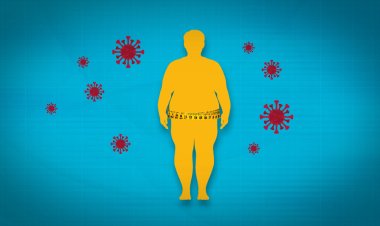How Family Therapy Works
Family therapy is a type of treatment designed to help with issues that specifically affect families' mental health and functioning

When a family's mental health or ability to function as a unit is at stake, family therapy can be an effective form of treatment. It can aid in the resolution of family issues and the development of healthier connections among family members. Family therapy can help close connections evolve by enhancing the communication and cooperation between family members.
Family therapy aims to improve family life by helping members communicate better and by identifying and resolving conflicts.
Types of Family Therapy
Family systems therapy:
To overcome emotional distress, one type of therapy called "family systems therapy" encourages patients to draw on the support of their loved ones.
Functional family therapy:
Youth who are engaging in risky conduct, violent acts, or substance abuse frequently benefit from functional family therapy, a short-term treatment option. Teens and their families can work together to solve problems while strengthening their relationships with one another.
Narrative family therapy:
The goal of narrative family therapy is to help family members reflect on their own life experiences and how those have shaped their identities and relationships with others. By engaging with this story, the individual can broaden their perspective and look at issues from other angles.
Psychoeducation:
Psychoeducation is a form of therapy that focuses on educating loved ones about mental health issues. Family members can better serve as a unified support system if they have greater information about medications, treatment alternatives, and self-help strategies.
Techniques
Both the therapist's theoretical orientation and the family's unique circumstances will influence the approach taken during family therapy. Among the possible approaches are:
Behavioral techniques:
Behavioral techniques: These approaches center on educating and training family members to deal with specific issues. Communication issues in the family can be worked out through, say, role-playing and modeling.
Psychodynamic techniques:
Psychodynamic approaches: These methods look at how each member of the family interprets and reacts to issues. The therapist helps the family discover new methods of understanding their emotions and responding to the situation.
What Family Therapy Can Help With
Many people can benefit from family counseling. Here are a few examples:

- Children's and adolescents' behavioral issues
- Family dynamics are shifting.
- Issues with Communication
- Loss of a Loved One
- Dissolution of marriage due to conflict or divorce
- Disagreements between parents and children
- Disagreements between the kin
- Family conflicts
- Major life changes or other stressful situations
- Trauma
Benefits of Family Therapy
As a form of therapy, this modality focuses on improving communication within families so that members may more effectively express their wants and needs and find mutually agreeable solutions to their issues.
:max_bytes(150000):strip_icc()/GettyImages-1026754434-f842d5af03034c5096aec972807062c6.jpg)
Family members are encouraged to work together to help one another overcome their problems in this sort of treatment. One situation in which family therapy can be helpful is when one member of the household is struggling with mental health.
Family members of those who suffer from mental illness may not always know what to do to help. This can lead to actions that contribute to the upkeep or exacerbation of their condition. Members of the family of a person with a mental disorder can benefit from learning more about how they can aid the family member in family therapy while also protecting their own mental health.
Effectiveness
The literature suggests that family therapy is useful for a number of situations. Examples of this include:
Adults who are experiencing relationship troubles, intimate partner abuse, mood disorders, anxiety disorders, psychosis, alcoholism, or difficulty adjusting to a chronic physical ailment may benefit from family therapy, according to a review published in 2018.
Family therapy has been shown to be effective in helping adolescents with mental health issues, according to a study published in 2019.
Behavioral issues, emotional distress, eating disorders, physical ailments, and healing from abuse or neglect are just some of the conditions that have shown improvement through family therapy, according to a 2019 analysis. Independent of other treatment modalities, it was proven to be effective in this investigation.
Things to Consider
Talking about sensitive issues and tensions within the family unit can make family therapy challenging and stressful. It's possible that some people will feel worse before they start to feel better. Keep in mind that a trained therapist is available to assist family members in resolving these issues and managing any associated strong feelings.
Although family therapy has many potential benefits, it is not the best option for everyone. Child psychotherapy and cognitive-behavioral therapy (CBT) are two other therapeutic options to consider.













